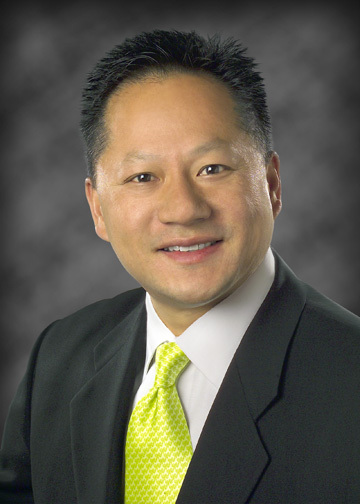Nvidia Wants to Make its Chips Inside Intel's Factories
Nvidia hints that it has an idea how to solve its chip production problem that delayed the introduction of Kepler GPUs.
The company suggests that it could employ the resources of what is considered the most sophisticated chip manufacturing company on the globe: Intel.
“Why not be a foundry for all the mobile companies?” CEO Jen-Hsun Huang said last week. “There’s no shame in that.”
The two companies may have settled their most aggressive disputes, but collaboration and helping each other out is not what Intel has in mind.
“We have a small nascent foundry business, but our focus with our SOCs (systems on a chip) is really on Intel based platforms,” said Jon Carvill who joined Intel as a spokesman from Globalfoundries last year. “Our process technology is a huge advantage going forward in 2012 and 2013, so our focus at this time is on building Intel products, not on building products for our competitors.”
Huang is known to be provocative and very direct with his statements, but it is hard to believe that he was entirely serious with the remark that Intel should be building Nvidia's chips.
Over the course of this year and 2013, Intel will heavily rely on its manufacturing capability to gain an advantage over the armada of ARM manufacturers that will attempt to gain market share from Intel in the entry-level Windows notebook market. Intel may make a strategic mistake once in a while, but it certainly is not going to help its rivals to take away market share from its core business. Intel is allowing Tabula and Achronix to use its 22 nm 3D Trigate manufacturing capability to produce FPGAs. However, Intel typically only supports organizations that it believes can helps its bottom line and increase demand for Intel processors.
Increasing the availability of Tegra 3 processors is surely not what would contribute to the goal of growing revenue.
Get Tom's Hardware's best news and in-depth reviews, straight to your inbox.

Douglas Perry was a freelance writer for Tom's Hardware covering semiconductors, storage technology, quantum computing, and processor power delivery. He has authored several books and is currently an editor for The Oregonian/OregonLive.
-
nbelote Intel wants to move up in the GPU game, and there's plenty of room for more competitors. AMD buying ATI was a move of necessity, AMD couldn't produce anything in the integrated or discrete graphics area. Intel buying nVidia? Not a chance.Reply -
jamsbong Nvidia is really proactive in merging Hardware with optimised software, much like the moto of Apple but a lot more open and cheaper. Of course, I do hope Nvidia improves their bad quality hardware as they are well-known to have faulty hardware from day1 usage.Reply
Other companies like ATI, AMD and Intel should be more proactive about getting Dev to use their hardware. -
starcraftmazter Who wouldn't want to use Intel's fab factories? Honestly, AMD would jump at the opportunity :PReply -
maxinexus Nvidia and intel merger = AMD death => not gonna happen just from the pure monopoly prospectiveReply -
With AMD abandoning the high end CPU market, almost all high end gpus are going into systems with Intel CPUs, so Intel working with Nvidia to put out those GPUs does not seem that far fetched.Reply
-
phishy714 This entire article could have been summarized in the following two lines:Reply
"Nvidia hints at wanting to make its chips in Intel factories.
Intel: NO! GO AWAY!"
